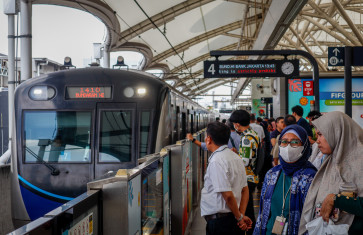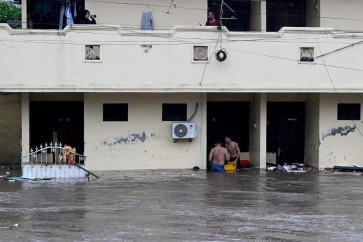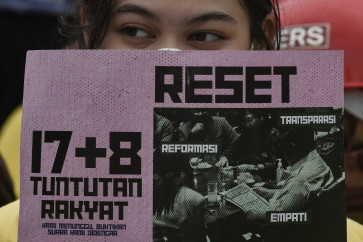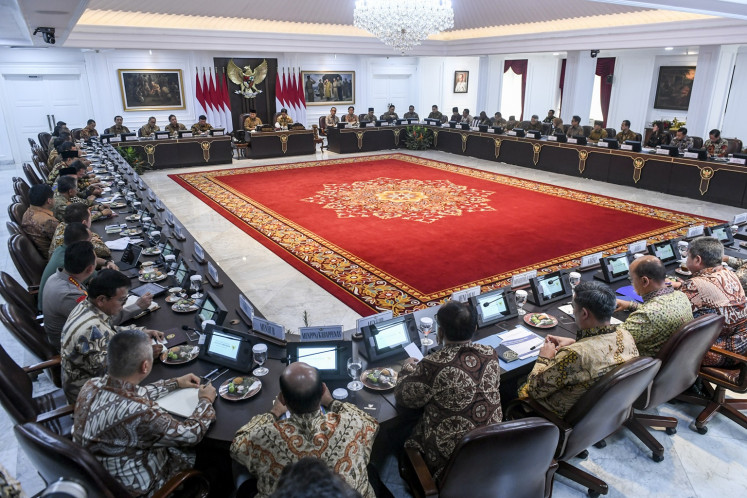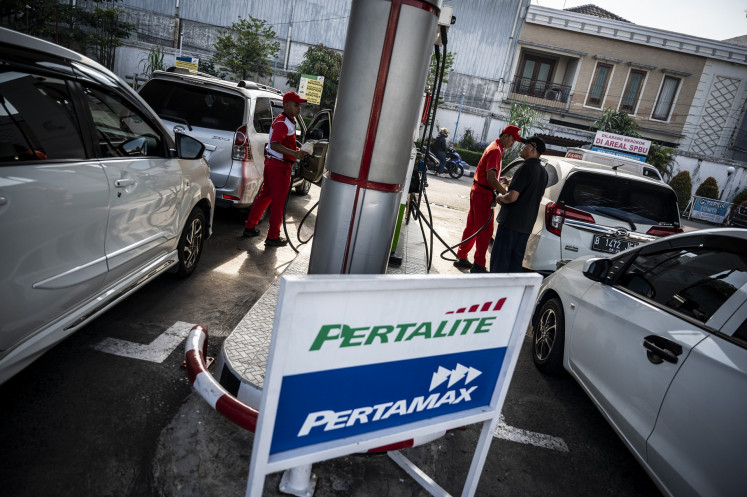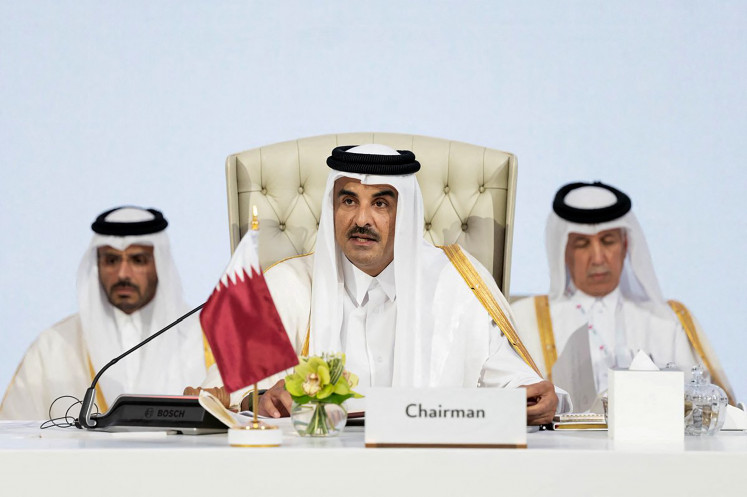Popular Reads
Top Results
Can't find what you're looking for?
View all search resultsPopular Reads
Top Results
Can't find what you're looking for?
View all search resultsBekasi aims to help alleviate Jakarta traffic
Despite the limited fleet and routes served by the Transpatriot bus service in Bekasi, the authorities have expressed optimism that its presence will encourage people to switch to public transportation and hence alleviate traffic woes not only in Bekasi but also Jakarta, as the West Java city is a leading contributor to congestion in the capital
Change text size
Gift Premium Articles
to Anyone
D
espite the limited fleet and routes served by the Transpatriot bus service in Bekasi, the authorities have expressed optimism that its presence will encourage people to switch to public transportation and hence alleviate traffic woes not only in Bekasi but also Jakarta, as the West Java city is a leading contributor to congestion in the capital.
With plans in place to integrate the service with Jakarta-run Transjakarta, Transpatriot is aimed at catering to the needs of commuters working in Jakarta.
“We will hold a meeting with Transjakarta’s [executives] in the near future. Transpatriot will be made a into a feeder service for Transjakarta, so Bekasi residents traveling to Jakarta can use our service first,” Bekasi Transportation Agency head Yayan Yuliana said on Wednesday.
“It’s possible that we will proactively approach people living in big residential areas and transport them to the nearest Transjakarta stops. We want them to leave their cars in the garage,” he added.
Bekasi also planned to develop three park-and-ride facilities as part of a collaboration with the Jakarta administration for commuters who travel to Jakarta. They can drive their car and park at Bekasi Terminal, Bekasi’s Indonesian Red Cross office and the Patriot Candrabhaga soccer stadium.
“Some of the park and ride locations are also near commuter line stations so people will have more options,” Yayan said.
Transpatriot buses have been serving people on the Bekasi Terminal-Harapan Indah route since Nov. 26. The fleet has nine buses but an expected 21 buses provided by the Transportation Ministry will beef up the Transpatriot fleet, opening up the possibility of serving new routes.
Since it first began operating, Transpatriot had received positive feedback from users, Yayan said, claiming the service’s load factor had gradually increased to 60 percent during rush hour.
To raise awareness, passengers are not being charged for the first month of operation. The administration will set the fare for Transpatriot buses at Rp 4,000 (28 US cents), which will be effective from Thursday. The fare sparked controversy, given that it is higher than Transjakarta, which has a far more extensive service.
“The fare should have been Rp 3,000 and Rp 1,500 for students,” Instagram user @jaksat97 posted on the agency’s official Instagram page.
User @endastyo.fadillah expressed doubt that the fare was attractive.
Currently, payments can only be made by cash but the operator plans to make the service cashless. It said it had opened discussions with a state-owned bank to support the scheme.
Bekasi, home to more than 2.5 million people, is considered a major contributor to congestion in Jakarta. The city has over a million registered motorcycles and 450,000 cars, according to the Greater Jakarta Transportation Body (BPTJ). On average, there are 756,748 vehicle movements, both private and public, daily from Bekasi heading to the capital.
The figure is the highest compared to other satellite cities. There were 748,602 movements from Tangerang in Banten to Jakarta and 617,274 from Bogor and Depok in West Java combined.
The findings prompted the BPTJ, which works under the Transportation Ministry, to implement odd-even traffic restrictions at West Bekasi and East Bekasi toll gates months leading up to the Asian Games last year. The policy aimed at halving the number of cars entering Jakarta, the cohost of the quadrennial multisport event.
Following the success of the policy, it was expanded to other toll gates connecting Jakarta to its satellite cities, including Tambun in East Bekasi.
The integration with Transjakarta is also in line with the company’s ambitious target to carry 1 million passengers per day on weekdays.
It served 189.77 million passengers throughout 2018, a jump from 144.72 million the previous year. The operator aims at serving 231 million passengers in 2019.


